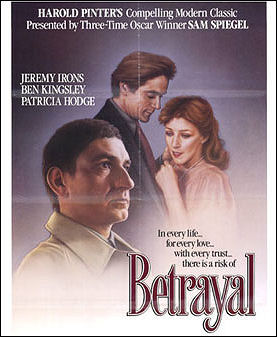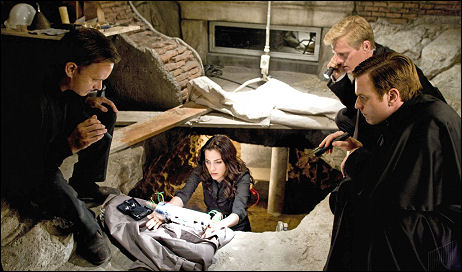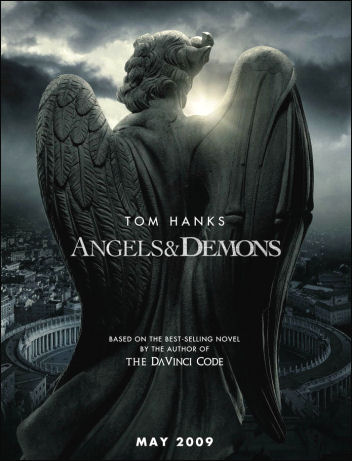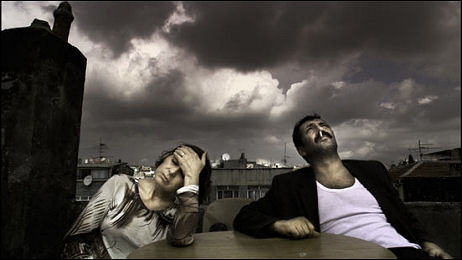I’ve put some thought today into the Best Picture contenders as well as the apparent second-tier films, and almost no thought whatsoever into the other categories. I’ve mainly just copied and pasted and plopped them into the new 2009 Oscar Balloon. The refinement process begins now.
BEST PICTURE (21): Mandela/Playing The Enemy (Warner Bros.), d: Clint Eastwood; Biutiful (Universal), d: Alejandro Gonzalez Inarritu; Nine (Weinstein Co.), d: Rob Marshall; Amelia (Fox Searchlight), d: Mira Nair; Green Zone (Universal), d: Paul Greengrass; Public Enemies (Universal), d: Michael Mann; Taking Woodstock (Focus Features), d: Ang Lee; Shutter Island (Paramount), d: Martin Scorsese; Cheri (Miramax), d: Stephen Frears; The Informant (Warner Bros.), d: Steven Soderbergh; Away We Go (Focus Features), d: Sam Mendes; Up In The Air (Paramount), d: Jason Reitman; The Hurt Locker (Summit), d: Kathryn Bigelow; An Education (Sony Classics), d: Lone Scherfig; The Lovely Bones (Paramount), d: Peter Jackson; Agora (no U.S. distributor), d: Alejandro Amenabar; The Road (Weinstein Co.), d: John Hillcoat; Brothers (MGM), d: Jim Sheridan; A Serious Man (Focus Features), d: Joel and Ethan Coen; Bright Star (no US distributor), d: Jane Campion; Julie and Julia (Columbia), d: Nora Ephron; The Tree of Life (no US distributor),d: Terrence Malick.
OTHER FORMIDABLES (15): Avatar (20th Cemtury Fox), d: James Cameron; Whatever Works (Sony Classics), d: Woody Allen; Men Who Stare at Goats (no US distributor), d: Grant Heslov; Leaves of Grass (no US distributor), d: Tim Blake Nelson; The Boat That Rocked (Universal), d: Richard Curtis; Dallas Buyer’s Club (Universal), d: Craig Gillespie; Untitled Nancy Meyers (Universal), d: Nancy Meyers; Ondine (no US distributor), d: Neil Jordan; Shanghai (Weinstein Co.), d: Mikael Hafstrom; Forgiveness (no US distributor), d: Todd Solondz; The Last Station (no US distributor), d: Michael Hoffman; Love Ranch (no US distributor), d: Taylor Hackford; Coca avant Chanel (Warner Bros.), d: Anne Fontaine; Nailed (Capitol Films), d: David O. Russell; Inglourious Basterds (Weinstein Co.), d: Quentin Tarantino.
PLUS (11): Lars von Trier‘s Antichrist, Cristian Mungiu‘s Tales From the Golden Age, Gaspar Noe‘s Enter the Void, a new Michael Moore documentary about profligate Wall Street bankers, Fatih Akin‘s Soul Kitchen, Michael Haneke‘s The White Ribbon, Jim Jarmusch‘s The Limits of Control, Ken Loach‘s Looking For Eric, Terry Gilliam‘s The Imaginarium Of Dr Parnassus, Andrea Arnold‘s Fish Tank; Jean-Pierre Jeunet‘s Micmacs a tire-larigot.
BEST DIRECTOR: Clint Eastwood (Mandela/Playing The Enemy); Rob Marshall (Nine); Mira Nair (Amelia); Paul Greengrass (Green Zone); Michael Mann (Public Enemies); Ang Lee (Taking Woodstock); Martin Scorsese (Shutter Island); Alejandro Gonzalez Inarritu (Biutiful); Sam Mendes (Away We Go); Jason Reitman (Up In The Air); Terrence Malick (The Tree of Life); Kathryn Bigelow (The Hurt Locker); Lone Scherfig (An Education); Peter Jackson (The Lovely Bones); Alejandro Amenabar (Agora); John Hillcoat (The Road); Jim Sheridan (Brothers); Joel and Ethan Coen (A Serious Man); Jane Campion (Bright Star), Nora Ephron (Julie and Julia).
BEST ACTOR: Morgan Freeman (Mandela/Playing The Enemy); Daniel Day-Lewis (Nine); Javier Bardem (Biutiful); Matt Damon (The Informant/Green Zone); Viggo Mortensen (The Road); Leonardo DiCaprio (Shutter Island); Johnny Depp (Public Enemies); George Clooney (Up In The Air, Men Who Stare at Goats); Sean Penn (The Tree of Life).
BEST ACTRESS: Michelle Pfeiffer (Cheri); Carey Mulligan (An Education); Hilary Swank (Amelia); Rachel Weisz (Agora); Penelope Cruz (Broken Embraces); Saoirse Ronan (The Lovely Bones); Helen Mirren (The Tempest/Love Ranch); Gabourey Sidibe (Precious: Based on the Novel by Sapphire); Audrey Tatou (Coco Avant Chanel); Maya Rudolph (Away We Go); Meryl Streep (Julie & Julia).
BEST SUPPORTING ACTOR: Christopher Plumber (The Last Station); Matt Damon (Mandela/Playing The Enemy); Richard Kind (A Serious Man); Billy Crudup (Public Enemies); Mark Ruffalo (Shutter Island); Ewan McGregor (Amelia); Christian Bale (Public Enemies); Alfred Molina (An Education); Jamie Foxx (The Soloist); Kodi Scott-McPhee (The Road); Jonathan Groff (Taking Woodstock).
BEST SUPPORTING ACTRESS: Michelle Williams (Shutter Island); Sophia Loren (Nine); Imelda Staunton (Taking Woodstock); Mo’nique (Precious: Based on the Novel by Sapphire); Marion Cotillard (Nine/Public Enemies); Kathy Bates (Cheri); Judi Dench (Nine); Rachel Weisz (The Lovely Bones).
BEST ADAPTED SCREENPLAY: Taking Woodstock (written by James Schamus, based on the book by Tom Monte); Nine (written by Michael Tolkin, Anthony Minghella; based on the novel by Arthur L. Kopit); Cheri (written by Christopher Hampton, based on the novel by Collette); Shutter Island (written by Brian Helgeland; based on the novel by Dennis Lehane); Mandela/Playing The Enemy (written by Anthony Peckham, based on the book “Playing the Enemy” by John Carlin; The Lovely Bones (written by Phillipa Boyens, Peter Jackson, Fran Walsh — based on the novel by Alice Sebold); Public Enemies (written by Ronan Bennett, Ann Biderman, Michael Mann — based on the book “Public Enemies: America’s Greatest Crime Wave and the Birth of the FBI, 1933-34 ” by Bryan Burrough); Amelia (written by Ronald Bass); Up in the Air (written by Jason Reitman; based on the novel by Walter Kirn);The Informant (written by Scott Z. Burns, based on the novel by Kurt Eichenwald).
BEST ORIGINAL SCREENPLAY : Up (written by Bob Peterson); An Education (written by Nick Hornby); A Serious Man (written by Joel and than Coen); Broken Embraces (written by Pedro Almodovar); Away We Go (written by Dave Eggars, Vendela Vida ; Biutiful (written by Amando Bo, Nicolas Giacobone, Alejandro Gonzalez Inarritu); Whatever Works (written by Woody Allen); The Hurt Locker (written by Mark Boal); The Limits of Control (written by Jim Jarmusch)





